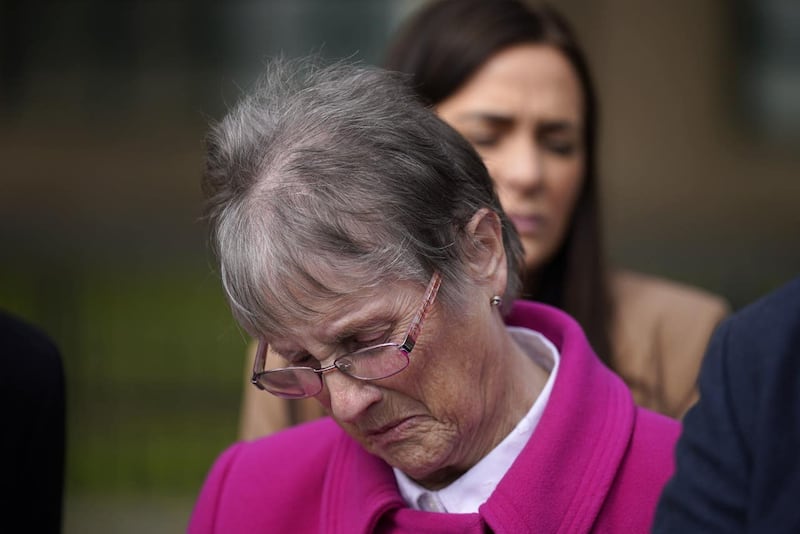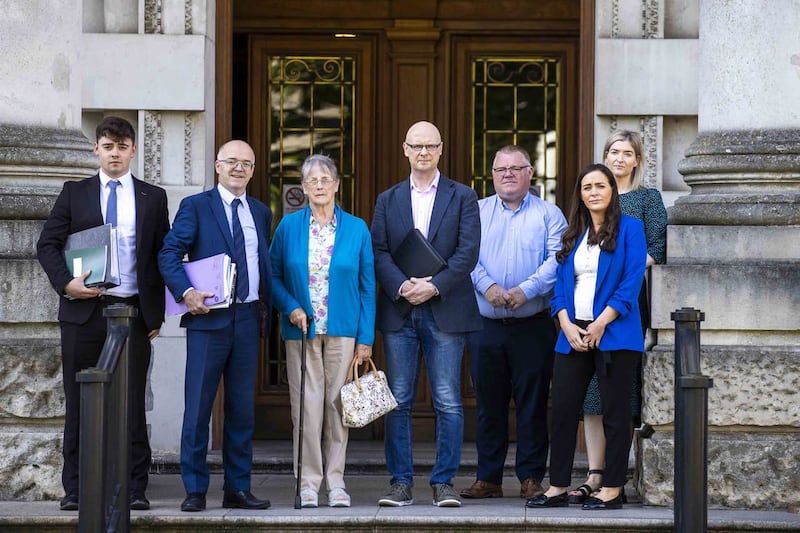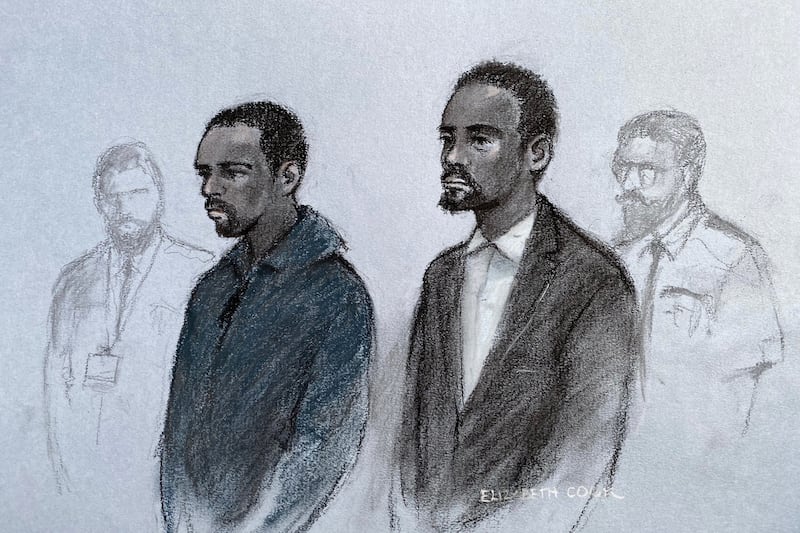The son of a nationalist councillor murdered almost half a century ago has said a proposed Legacy Bill is designed to cause pain and hurt to families seeking the truth about what happened to their loved ones.
Patsy Kelly was speaking as his mother Teresa launched legal action in Belfast in an attempt to force the Attorney General to order a new inquest into the death of her husband, also called Patsy Kelly.
Mr Kelly found dead in July 1974, three weeks after being reported missing.

Earlier this year, the Police Ombudsman for Northern Ireland found that the RUC investigation into Mr Kelly’s murder was “wholly inadequate”, with the actions of some officers indicative of “collusive behaviour”.
Mr Kelly was last seen alive in the early hours of July 24 1974 as he drove away from the Corner Bar in Trillick, Co Tyrone, where he worked.
His body was found in Lough Eyes, near Lisbellaw, in Co Fermanagh, three weeks later, on August 10. He had been shot six times.
While loyalist paramilitaries claimed responsibility for the murder, the Kelly family believe the killing was perpetrated by members of an Ulster Defence Regiment army patrol. No-one has ever been charged or prosecuted.
Following the ombudsman’s report, the family reiterated their demand for a fresh inquest to be ordered. An original inquest in 1975 delivered an open verdict.
However their request was turned down by the office of Northern Ireland’s Attorney General, Dame Brenda King.
Mrs Kelly took the judicial review application to Belfast High Court on Monday in an attempt to overturn that decision.
However, the hearing took place against the backdrop of the passage through Parliament of controversial legislation aimed at addressing the legacy of Northern Ireland’s Troubles, which is expected to become law next month.
The Northern Ireland Troubles (Legacy and Reconciliation) Bill would halt future civil cases and inquests linked to killings during the conflict.
A recent amendment introduced by the Government further stated that ongoing inquests, other than those at the point of verdict, will cease on May 1 2024.
The court was told that the proposed legislation means there is “urgency” in the bid to get the Attorney General’s decision reversed.
Speaking outside court, accompanied by his mother, Mr Kelly said: “My father was murdered almost 50 years ago and since then we’ve been faced by delay after delay, denial after denial.
“Our family should not have to go through these ongoing delays.
“We want the truth. This is about nothing else, simply the truth.”
He added: “It is very, very clear that the Legacy Bill is designed and its aim is to cause as much hurt and to inflict as much pain to those families, similar to ours, hundreds of others, who have dared to seek truth and justice.
“It’s ultimate aim is to inflict as much pain as possible on families like ours.”
During the preliminary hearing, a barrister for the Kelly family said the whole legal process around the case has been characterised by delay.

The barrister said matters now have a “sharper focus” due to the progress of the Legacy Bill through Parliament.
He said: “This proposed legislation is at a significantly advanced stage and appears on its face to be imminently about to become law.
“No party to these proceedings should be blind to the progress of that Bill.”
He said the urgency of the case has arisen because, when the Bill receives Royal Assent, the Attorney General will no longer have the authority to order a fresh inquest.
Barrister for the Attorney General, Tony McGleenan KC, said the court should proceed on the basis of the law as it stands, rather than speculating on what it might be.
High Court judge Mr Justice Scoffield noted that the Attorney General has committed to providing a further decision on whether there should be an inquest imminently.
He said his strong view is that that should happen by Friday of this week.
He said he will not make any directions in the application ahead of the redetermination by the Attorney General.








